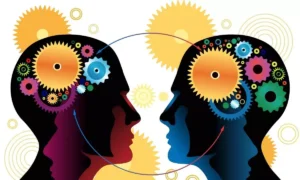How Mental Health Treatment Can Change The Brain? Numerous advantages of meditation have been demonstrated, including improved focus, less stress, and improved cognitive function. It has also been shown to alter the brain, more especially its shape and size. Since it has been practiced for thousands of years, meditation is now understood to be an effective method of altering the brain. You can visit right away to learn more about how meditation and rehabilitation can alter your brain and improve your way of life. This article will show you how to meditate for beginners if meditation interests you but you’re not sure how to accomplish it.
Contents
- 1 Benefits of meditation
- 2 Ways in which meditation affects the brain
- 2.1 The Brain’s Structures are modified by Meditation
- 2.2 Stress management in Rehab
- 2.3 How Meditating Can Boost Concentration and Focus
- 2.4 The Aging Brain Can Be Preserved Through Meditation
- 2.5 Meditation Lowers “Me Center” Brain Activity
- 2.6 Meditation and rehab may improve advantageous abilities like alertness and memory.
- 2.7 Final thoughts on meditation and rehab
Benefits of meditation

There are many different forms of meditation, but the most popular is to sit quietly with your eyes closed while paying attention to your breath. The advantages of meditation are numerous and include:
- Reducing stress and anxiety
- Improving memory and concentration
- Helping with sleep
- Reducing pain
- Improving mood
- Improving self-awareness
- Improving relationships
Meditation is a technique of deep relaxation that has been practiced for hundreds of years and has been proven to improve brain function, reduce stress, and increase attention. The scientific community has only lately learned how meditation affects the brain and how it might improve your life, despite the fact that it has been a practice for millennia.
Ways in which meditation affects the brain
The Brain’s Structures are modified by Meditation
Research suggests that practicing mindfulness meditation can change the way the brain is wired. Although it is commonly acknowledged that alterations are associated with worsened emotional regulation and changes are connected with stress-related negative sensations, scientists are still investigating the ramifications of hippocampus volume changes. Serious depression and post-traumatic stress disorder are two mental health diseases that are associated with decreased hippocampal volume and density (PTSD).
Read More: The Best Homemade Facemask for Acne: A Guide
Stress management in Rehab
Numerous research has shown that meditation increases pain tolerance while reducing anxiety and depressive symptoms. The researchers draw the conclusion that some forms of meditation, particularly mindfulness meditation, may aid in reducing psychological stress, but they underline the need for additional research on how meditation may improve mental health.
How Meditating Can Boost Concentration and Focus
In the busy, distracted world of today, everyone periodically has trouble focusing. It may not surprise you that scientists suggest there is reason to believe that meditation can help with it. Millions of adults struggle with concentration, whether or not they have an attention deficit disorder diagnosis (ADD). It’s intriguing, but not surprising, that improving focus and attention is one of meditation’s key benefits.
A new study found that even a short period of meditation practice can help people focus and remember information better during the verbal reasoning section of the GRE. The actual score improvement was 16 percentile points, which is a considerable improvement. That meditation and therapy should enhance people’s cognitive capacities at work shouldn’t be a surprise. Maintaining a tight focus of attention (on an item, concept, or action) is one of the fundamental aims of this practice, but it’s fantastic to have research to back this up.
The Aging Brain Can Be Preserved Through Meditation
According to a UCLA study released last week, long-term meditators have better-preserved brains than non-meditators as they age. Participants who had been meditating for an average of 20 years had larger amounts of grey matter across their brains. While there was still some volume loss in elder meditators compared to younger meditators, it wasn’t as bad as it was in non-meditators.
Meditation Lowers “Me Center” Brain Activity

Because mind-wandering is typically associated with sadness, brooding, and worrying about the past and the future, many individuals seek to lessen it. Numerous studies have shown that meditation seems to do this via calming the DMN. And because of the new connections that emerge, meditators are better at bringing their thoughts back to the present moment even when they do drift.
Meditation and rehab may improve advantageous abilities like alertness and memory.
Researchers have discovered that those who meditate have unique brains with fully developed areas connected to the control of consciousness and emotional regulation. It’s possible that people with such brains would naturally be more motivated to meditate. Other studies show that after completing a meditation program, individuals’ memories, self-awareness, and views change in their brains.
Final thoughts on meditation and rehab
Numerous advantages of meditation and rehabilitation have been demonstrated, including enhanced brain function, stress reduction, and an improved sense of well-being. Meditation is a fantastic alternative if you’re trying to improve your physical and mental health. Transcendental meditation and mindfulness meditation are two of the most well-liked types of meditation. According to a study, eight weeks of daily 20-minute meditation led to alterations in the brain. According to the study, individuals who meditated had larger hippocampi and more grey matter in their brains, which are regions linked to memory, learning, and emotion. The study also discovered that those who meditated had higher amounts of dopamine in their brains, which is related to happiness.

